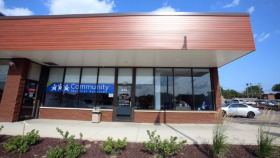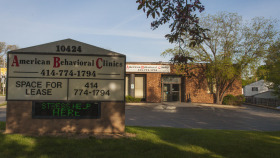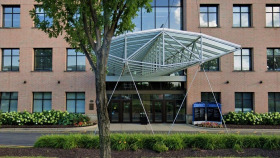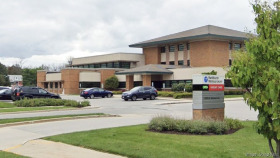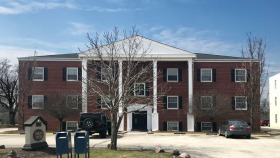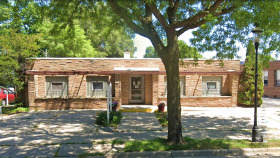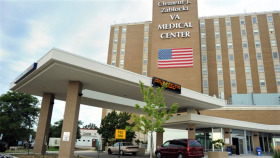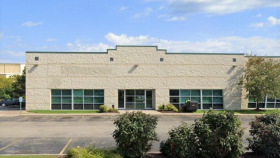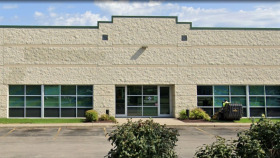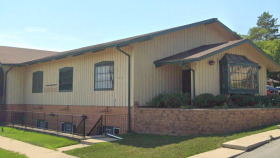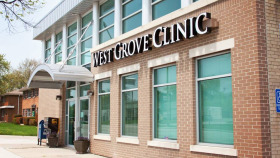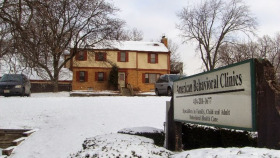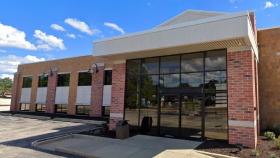Alcohol and Drug Use Statistics in West Allis, WI
Abuse of drugs and alcohol in West Allis and Milwaukee County leads to health issues, including overdose and death. Some statistics about alcohol and drug use in Milwaukee County include:1,2,3,4,5
In 2021, there were 5,247 in Milwaukee County.
In 2021, in Milwaukee County, 729 people visited the emergency room for opioid-related reasons.
In 2020, 423 people received county services for opioid addiction in Milwaukee County.
Levels of Care for Addiction Treatment Settings
There are various levels of addiction treatment, ranging in intensiveness and frequency of care. The right level for you depends on the length and severity of your addiction, your mental and physical health, your support system, and more.
Detoxification
Drug and alcohol detox is a controlled and supervised setting in which your body gets rid of addictive substances. Detox can occur in several settings, including outpatient and inpatient environments. Some are medically managed, which means doctors and nurses provide medications and medical care round-the-clock. Certain drugs, such as alcohol, benzodiazepines, and opioids, have particularly distressing and even dangerous withdrawal symptoms, so these drugs often necessitate detox.
Inpatient Care
Inpatient or residential drug rehab is the most intensive addiction treatment setting, providing 24/7 care, supervision, and monitoring. You live at the facility for the duration of the treatment program, which may last 30, 60, or 90 days. This setting may be best for someone with a severe addiction, polysubstance addiction, or co-occurring mental health disorder, like PTSD or depression.
Partial Hospitalization Programs (PHPs)
PHPs provide a high level of care while allowing you to live at home during the program. You go to the clinic every day for several hours per day but return home during non-treatment hours. It’s a great option for step-down care after completing an inpatient program or as an initial treatment program for someone who can’t necessarily go to inpatient care due to obligations.
Intensive Outpatient Programs (IOPs)
A step down from PHP, an IOP includes several hours of therapy for a few days per week. This option may be beneficial if you have a mild addiction and a strong support system. It may also be used as step-down care after completing inpatient or PHP.
Standard Outpatient
If you choose standard outpatient treatment, you attend therapy one to two days per week for one or two hours per session. Many people make their way through the continuum of care by first completing inpatient or an intensive outpatient program before stepping down to standard outpatient.
Aftercare
Once you’ve completed an addiction treatment program, you will want to continue receiving ongoing support, known as aftercare. You can collaborate with your treatment team on creating an aftercare plan that addresses your needs and preferences. Some people transition into a sober living home while others may join a support group, attending therapy, or all of the above.
How to Pay for Drug Rehab in Wisconsin
Cost shouldn’t be a barrier to quality addiction treatment. There are many ways to finance drug rehab so that you can get the help you need.
Use Private Health Insurance
If you have private health insurance through work or the Healthcare Marketplace, you can use your plan to at least partially, if not fully, cover substance abuse treatment services. Every plan is different—some fully cover inpatient rehab for a certain period while others may only partially cover residential. Make sure to call your provider to learn more. And once you know what your insurance provider will pay, make sure to find a rehab that is in-network with your provider.
BadgerCare (Wisconsin Medicaid)
BadgerCare is Wisconsin’s Medicaid program for low-income people, families, and pregnant individuals who don’t have access to private health insurance. BadgerCare covers drug and alcohol rehab in Wisconsin, including inpatient, outpatient, medication-assisted treatment, assessments, and beyond. Not every treatment facility accepts Medicaid, though, so you’ll want to do your research before committing to one.
Medicare
Medicare is a government program providing health insurance coverage to Wisconsin residents aged 65 and older or those with certain disabilities or health conditions. Like BadgerCare, Medicare covers substance abuse treatment services, such as outpatient rehab, residential treatment, and addiction treatment medications.
TRICARE in Wisconsin
TRICARE provides health insurance coverage for veterans, active-duty military personnel, and their families, and it covers much-needed drug rehab and alcohol rehab services as well as mental health treatment.
Sliding Scale Rehabs
Sliding scale rehabs are able to offer treatment at discounted rates depending on a person’s income, meaning that they only charge you what you are reasonably able to pay. This can greatly reduce the financial burden of drug rehab and enable you to seek the treatment you need to recover from addiction.
IHS-Funded Drug Rehabs
Some drug and alcohol rehabs receive funding from the Indian Health Service, which is a federal health program for Indigenous people in the U.S., including Alaskan Natives. These rehabs offer no-cost addiction treatment to Native Americans, whether they already have health insurance or not. However, the majority of IHS-funded drug rehabs are located on reservations, which may make it difficult for Indigenous folks in cities to access them.

Traveling to and Within West Allis, WI
Here are some helpful travel tips if you are traveling to West Allis, WI, for drug or alcohol rehab or if you are visiting a loved one attending a treatment center in the area:
- The closest airport to West Allis is General Mitchell International Airport in Milwaukee.
- You can drive to West Allis, WI, via Interstates 94 and 41.
- The Milwaukee County Transit System operates public buses in West Allis. You can also access ride-share and bike-share services for getting around the area.
- There are a handful of hotels in West Allis, though there are more options in Milwaukee proper. You can choose between affordable national chain brands as well as luxury hotels or hotels attached to casinos in downtown Milwaukee. You can also find rental accommodations using apps like Air BnB.
- When looking to go out to eat, you can choose among multiple dining options in West Allis. There are local eateries as well as national chains and fast-food restaurants.
- Visitors to West Allis may enjoy going to the Milwaukee County Zoo, the Milwaukee Mile Speedway, and the Milwaukee Public Museum.
Alcohol and Drug Laws in Wisconsin
Alcohol and Drug Laws in Wisconsin:1,2
Wisconsin Naloxone Access and Administration Law: Residents of Wisconsin can obtain naloxone (Narcan) without a prescription and they can also administer it to an overdosing person once they’ve had proper training.
Wisconsin State Good Samaritan Law Amendment: Bystanders in possession of drugs can call 911 to help someone who is overdosing without the risk of being arrested and prosecuted for possession.
Resources
- Wisconsin Department of Health Services. (No date). Dose of Reality: Opioid Hospital Visit Dashboard.
- Wisconsin Department of Health Services. (No date). Substance use: drug overdose deaths dashboard.
- Wisconsin Department of Health Services. (No date). Alcohol: attributable deaths by county dashboard.
- Wisconsin Department of Health Services. (No date). Dose of Reality: Opioid Deaths by County Dashboard.
- Wisconsin Department of Health Services. (No date). Dose of Reality: Opioid Treatment Data by County Dashboard.


